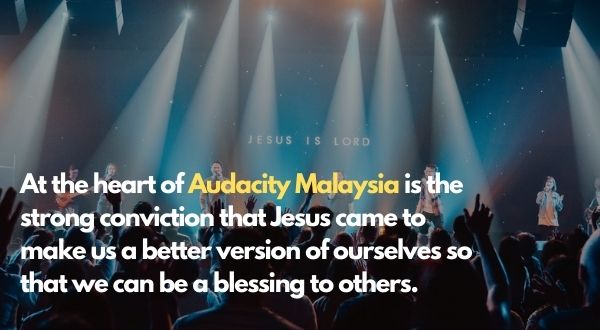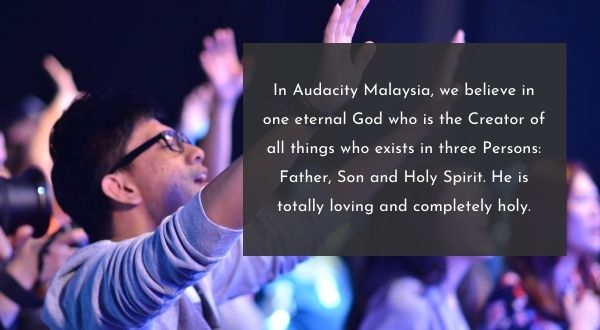One of the soberest contemplations of a human being must be where we spend eternity. What is the final state of a human soul when life on earth is done? Where do we go from here when we breathe our last breath? Needless to say, our answers to these questions have tremendous implications on how we live on earth.
If we believe in universalism that every human being will end up in the better place called heaven, then how we live on earth is hardly that important. And if we believe in annihilation that our soul ceases to exist after physical death, then let’s live it up before we cease to be.
The Bible is clear that the soul of man is everlasting. Furthermore, it teaches that whether we find ourselves in bliss in our eternal state depends on whether we believe in Jesus.
Throughout its two thousand years of history, the church has overwhelmingly held to the biblical understanding that those who believe in Jesus live in eternity in the presence of God, while those who don’t believe in Jesus suffer eternal punishment. In Audacity Malaysia, we likewise, believe in eternal life for believers and eternal punishment for unbelievers.
True knowledge of God is what results in eternal life. But this “knowing God” is not mere intellectual assent to what the Word of God says. It is a personal relationship with God and Jesus Christ.
Now this is eternal life: that they know you, the only true God, and Jesus Christ, whom you have sent.
John 17:3, NIV
As the abode of God, heaven is where believers will spend eternity in the presence of God. Jesus himself asks his followers to prepare for life in heaven by “storing up treasure” there ahead of their entry (Matthew 6:19-20).
While few will contend the final state of believers, the future state of unbelievers has created a considerable amount of uneasiness with some arguing that the doctrine of eternal punishment is outmoded. Part of the problem stems from what appears to be a tension between the love of God and his judgment.
Among the images the Bible uses to depict the final state of unbelievers are “eternal punishment” (Matthew 25: 41, 46), “outer darkness” (Matthew 8:12), “torment” (Revelation 14:10-11), “the wrath of God” (Romans 2:5), the “second death” (Revelation 21:8) and “exclusion from the face of God” (2 Thessalonians 1:9). Whether it involves physical suffering or mental distress or both, it is obviously an experience of intense anguish.
The one basic characteristic of these images is the absence of God or banishment from the presence of God. We should, however, note that God does not send anyone to eternal punishment for he does not want anyone to perish but everyone to come to repentance (2 Peter 3:9). But endowed with free will, humans will have to choose for themselves the bliss of heaven or the agony of hell. As C.S. Lewis has put it, sin is a person’s saying to God throughout life, “Go away and leave me alone.” Hell is God finally saying to that individual, “You may have what you wish.”
No matter how comforting the concept of universalism is, it is not tenable scripturally. Some have even contended that those who reject the offer of salvation in this life, will after death and Christ’s second coming repent and be reconciled to Christ. The problem is there is simply nowhere in the Bible that indicates even the slightest possibility of a second chance. What we find instead are definite statements to the contrary.
Another school of thought, annihilationism maintains that although only believers will spend eternity with God, unbelievers will be eliminated or annihilated. Hence none will be subjected to eternal punishment since unbelievers will simply cease to exist. Annihilation appears to be a great proposition except that it contradicts the teaching of the Bible!
Whatever one’s spiritual condition is at the end of life is one’s permanent condition that will continue for all eternity.
Both the OT and NT refer to the unquenchable fire of hell. Furthermore, Jesus’ teaching suggests that there are degrees of punishment in hell. The cities which had witnessed the miracles of Jesus but failed to repent will face more severe punishment (Matthew 11:21-24). There is a similar hint in the parable of the faithful and faithless stewards (Luke 12:47-48). The principle seems to be the greater the knowledge and responsibility, the greater the punishment. The varying degree of punishment in hell parallels the varying degree of reward in heaven.
In the light of the teaching of Scripture about the final state of unbelievers, the command of God to preach the gospel cannot be trifled with. It is the expressed desire of God that all should come to faith in Christ and believers must do their part to lead as many as possible to righteousness.
Multitudes who sleep in the dust of the earth will awake: some to everlasting life, others to shame and everlasting contempt. Those who are wise will shine like the brightness of the heavens, and those who lead many to righteousness, like the stars for ever and ever.
Daniel 12:2-3, NIV
References:
- Erickson, Millard J. Introducing Christian Doctrine (Grand Rapids: Baker Book, 1997).



















